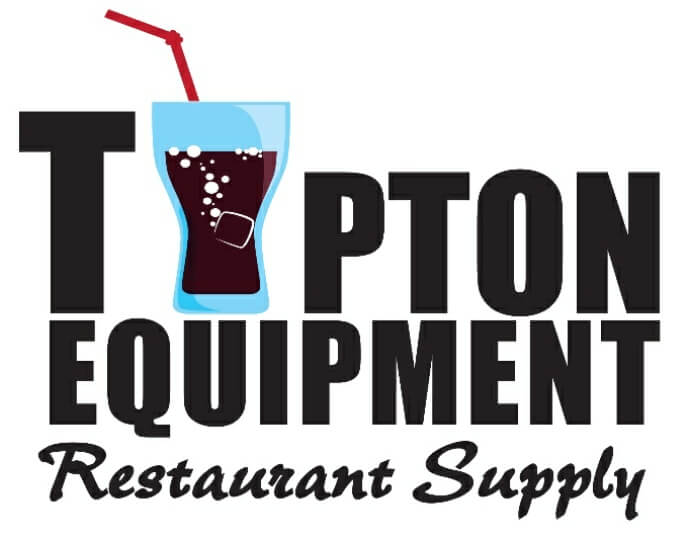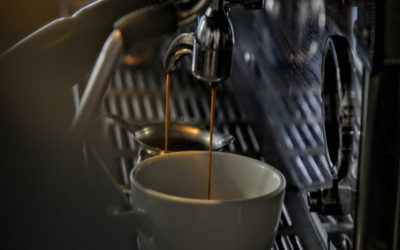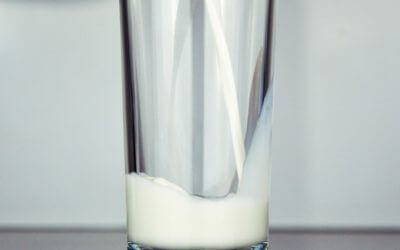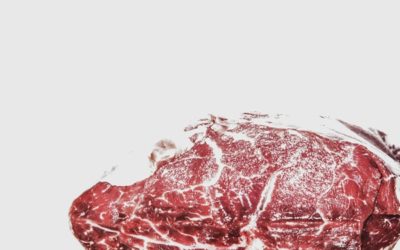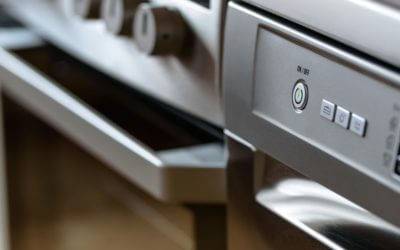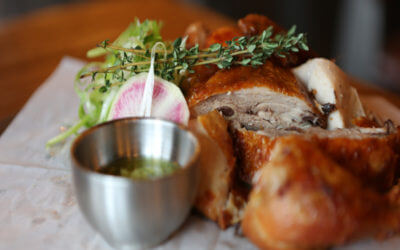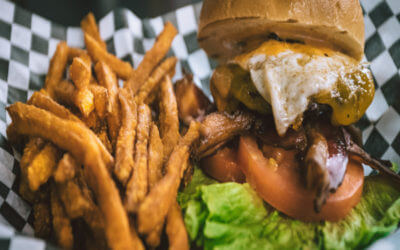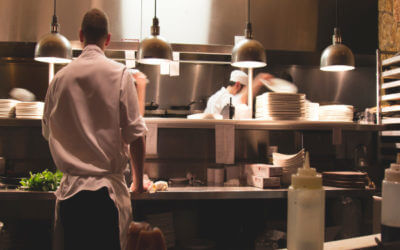Types of Insurance Your Restaurant Needs
May 1, 2019No one gets into the restaurant business thinking about insurance and paperwork, but it’s still an important part of doing business. Insurance helps protect you from natural disaster, theft, employee injuries, and liability.
Many times you can get insurance discounts when you take steps to keep your employees and kitchen equipment safe, reducing your risk. Here are the primary types of insurance to focus on!
Worker’s Compensation
This one is simple – it’s required by law and you can get in a lot of trouble if you don’t carry it. Worker’s compensation insurance helps pay for employee’s injuries and lost wages if they get hurt on the job.
Unfortunately, using the equipment and supplies in a restaurant can be pretty dangerous. This is especially true if you have younger workers who have less experience around sharp knives, hot stoves, and fryers full of hot oil.
To lower your risk, have specific processes for your kitchen and front of the house. Your senior staff and managers should help ensure they are followed precisely every time.
Property Insurance
Whether your property is stolen or damaged by bad weather, you want to have help putting the pieces back together if something goes wrong. Property insurance can help.
Keep in mind that most property, including expensive kitchen equipment, will only be replaced at the actual cash value. You may be able to purchase additional coverage to get replacement value, at least on your most important items.
Be sure to add coverage for sewage backup, which is not covered by normal commercial insurance. Unfortunately you can’t control what your patrons do in the restroom, and it pays to be covered!
Liability Coverage
Unfortunately, businesses are seen as prime pickings for those who want to make a buck through a lawsuit. There are also legitimate accidents that can happen where you might be liable for injuries or damage.
Either way, having a strong liability policy is vital. Whether a diner is injured by your equipment or supplies, or scalded with coffee, or trips over a chair, you could be liable. Protecting yourself during a lawsuit is just as important as having coverage if you’re found responsible.
You may also need specific coverage for liquor liability if you serve alcoholic beverages.
Liability coverage covers both legal defense and damages, so it’s important to choose excellent coverage!
Commercial Auto Insurance
If your restaurant has delivery or catering, you’ll need to make sure you have appropriate insurance. Be sure you have liability coverage, property damage, and additional coverage for any kitchen equipment or materials that are stored in the vehicle.
Many insurers will offer all of the insurance you need in a single package. That can make it much easier to manage, but you may be able to get a better premium if you shop around for each type of coverage.
Get the Kitchen Equipment You Need
Whether it’s time to upgrade your kitchen equipment or you’re considering expanding, it pays to have a supplier you know and trust. Tipton Equipment has been serving Little Rock restaurants for many years, and we’d love to help you find the supplies you need.
We have a variety of items available for your commercial kitchen and the front of the house. Contact us today to see what we can do for you!
5 Things Every Restaurant Owner Should Do Before Buying Used Kitchen Equipment
Equipping your restaurant properly can cost a lot of money, so buying used kitchen equipment is the go-to choice for many restaurateurs. Buying used kitchen equipment for a restaurant is a bit different than buying used equipment for your home, however. You will...
Top Restaurant Technology Trends in 2018
When looking to buy restaurant supplies, you want to be on the leading edge of technology trends. This will keep your kitchen running smoothly. Let’s take a look at some of the most recent trends in restaurant supplies technology. 1. New Payment Options Who would...
5 Different Ice Shapes and Why You Should Care About Them
Ice makers are very popular in the restaurant and foodservice community because they eliminate the need to buy ice every day. And of course, adding an ice maker to your collection of foodservice equipment means you will always have ice on hand when you need it. An...
Pulping and Grinding: A Starter’s Guide to Reducing Commercial Food Waste Costs
For most restaurant owners and managers, the expenses involved in making meals are always under careful consideration. Water is needed to prepare, cook and wash food; power is necessary for food prep, cooking and cooling, and so on. However, how many of us consider...
Choosing the Right Milk Cooler: Cold Wall or Forced Air?
In a restaurant, milk is an essential to have on hand for coffee and other café-style beverages, for serving with kids’ meals, and as a key ingredient in many recipes. Keeping your milk properly chilled can be difficult without the proper restaurant equipment....
How to Choose Your Next Commercial Meat Smoker
The movies that connect with us on a personal level are the ones that linger in our memories forever. Anyone who has used a commercial meat smoker knows that they have a huge influence on the taste of a meal. You need to have just the right kitchen equipment to get a...
Are High Speed Ovens Too Good to be True?
You might have heard a few of the bold claims that foodservice equipment manufacturers have been making about high speed ovens, but they can’t be possible, right? Cooking three times as faster as regular ovens? Five times as fast? Fifteen times as fast? It may seem...
Choosing the Right Food Storage Containers for Your Restaurant
Choosing the right kitchen supplies will make a difference in your restaurant. Whether it is heavy duty kitchen equipment or food storage containers, each piece of equipment plays its own important role. Today, we are going to talk about how to choose the right food...
Tipton’s Guide to Perfect Poultry Trussing
Do you ever truss birds in your commercial kitchen? Trussing is a fantastic cooking technique because it makes poultry cook faster, look more attractive and taste better. If your commercial kitchen prepares poultry, you don’t want to miss these trussing tips. Trussing...
How to Eliminate Excess Condensation in Your Kitchen
Is your commercial kitchen getting steamy? If so, you could have more than just an uncomfortable working environment on your hands. Excess moisture in your commercial kitchen can result in the corrosion of equipment, the development of mold, and even damage to your...
The DIY Guide to Your Restaurant’s Own Garden
Stocking your restaurant supply with your own home-grown herbs and produce can truly bring your dishes to life. When it comes to food, everyone knows there’s nothing like homemade and home-grown. Having your own culinary garden, however large or small, can help you...
5 Reasons a Meat Grinder Will Set Your Burgers Apart
The more you do to prepare your foods in-house with the right kitchen equipment, the fresher and more flavorful your dishes become. There are all sorts of restaurants offering fast-food style burgers, but some diners are looking for the real deal. A fresh, juicy...
Pest Preventions to Implement in Your Commercial Kitchen
Restaurant pests: it’s something that few people want to think about. Like it or not, pest management is an essential consideration for every commercial kitchen. Offering food, shelter and water, the unprepared commercial kitchen naturally provides everything pests...
Choosing the Right Material for Your Cooking Equipment
Kitchens are very unique to their chef. Just like a car mechanic has a toolbox unique to them, so is the cooking equipment in a kitchen. And over time, the same cooking equipment become a natural extension of the chef. What tools are you using in your kitchen? It...
Kitchen Hacks for Your Home
Some people are naturally good at certain skills. We all know someone who is naturally book smart, athletic, or musically inclined. What makes you jealous of them is how easy they make tasks seem compared to you. One skill might be cooking. Your dream may not be...
